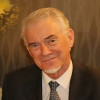As Eid ul Fitr is celebrated, it is a good time to reflect on old foundations, traditions and new ways. Most things remain the same, but some change. And we should remember that Ramadan and Eid are both age-old and modern at the same time. The foundations are steadfast, but some traditions change as we discover new and more relevant ways for our time, with variations over geographic areas, groups of people, and more. We should feel that the way we celebrate is right and good for ourselves and for the people around us.
The Christian fast, Lent, which this year was marked partly at the same time as Ramadan, ended with Easter about a fortnight ago. At the end of April, the Jewish Passover will be marked. The three Abrahamic religions are interwoven and build on each other, yet, they also with differences. The old foundations and many of the religious dogma is similar, but traditions have also developed and changes have come over time.
We should appreciate that in spite of variations, much of the focus is on commonalities rather than differences, and many differences are often more on the surface, about form and relative emphasis of aspects and issues. I believe that everybody’s old foundations, values, and traditions become stronger if we listen to each and consider the thinking of others, not necessarily to change, but still to learn about different forms and expressions. Exchange between ‘neighbours in faith’ strengthens all - as we remember that God is one and the same for all people.
US Fed’s Barkin says recent inflation data ‘not supportive’ of case for rate cuts The tradition of fast is an expression of obedience and praise to God, a time of cleansing and reflection, celebrated across and beyond religions and sects and branches within them. In the modern Protestant Christian tradition, few priests and ordinary members carry out the actual concrete fast today, but in the Catholic branch, and certainly the Orthodox branch, fasting is observed. In the Protestant traditions, much has gotten lost and has changed, and new ways have taken over. Some new ways may be good, but many will also regret the changes, admitting at the same time that recreating old ways is difficult. In the Protestant Church today, the period of fasting is focused on in the calendar and in the sermons over the whole four-week period of fast; the end of fasting is celebrated with Easter, which is similar to Eid.
The spiritual aspects of fasting, with reflection, prayer, and the social aspects of helping the needy are still observed amongst Christians, but not quite with the same commitment as shown by Muslims. In Pakistan, though, where Christianity and Islam live close to each other, many Christians observe fast in similar, concrete ways as Muslims. This underlines the positive aspects of related religions borrowing from each other as good neighbors. In any case, the essential aspects of the period of fasting are the spiritual aspects, prayer, renewal of one’s faith, considering social issues, and doing good to others.
UK growth uptick fuels hopes of recession exit People want to distinguish between their own faith and their social and political opinions. Yet, at the same time, people of faith also want their values and ethics to be seen in their everyday life. Muslim and Christian faithful stress that in the end, our actions are built on our faith values. Today, though, watching the terrible wars in Gaza, Ukraine, and elsewhere, we seem not to be guided by our religions. We seem to forget the basic teaching of Jesus/Isa, that we should love our enemy and always work for peace. Islam and Christianity build on this fundamental way of thinking and behaving.
Dear Reader, may I wish you Eid Mubarak 2024, thank you for all the good you have done, and wishing you health, prosperity and a good spiritual and social life. Let us all pray that the ongoing wars and conflicts will end, and that peace will prevail everywhere – to be realized with the efforts of all of us.
Atle Hetland
The writer is a senior Norwegian social scientist with experience from university, diplomacy and development aid. He can be reached at atlehetland@yahoo.com
Asian stocks struggle to track Wall St higher, earnings in focus
Traditions, and New Ways
 13
13
 0
13.04.2024
0
13.04.2024
As Eid ul Fitr is celebrated, it is a good time to reflect on old foundations, traditions and new ways. Most things remain the same, but some change. And we should remember that Ramadan and Eid are both age-old and modern at the same time. The foundations are steadfast, but some traditions change as we discover new and more relevant ways for our time, with variations over geographic areas, groups of people, and more. We should feel that the way we celebrate is right and good for ourselves and for the people around us.
The Christian fast, Lent, which this year was marked partly at the same time as Ramadan, ended with Easter about a fortnight ago. At the end of April, the Jewish Passover will be marked. The three Abrahamic religions are interwoven and build on each other, yet, they also with differences. The old foundations and many of the religious dogma is similar, but traditions have also developed and changes have come over time.
We should appreciate that in spite of variations, much of the focus is on commonalities rather than differences, and many differences are often........
© The Nation
 visit website
visit website






















 Toi Staff
Toi Staff Gideon Levy
Gideon Levy Belen Fernandez
Belen Fernandez Rami G Khouri
Rami G Khouri Mort Laitner
Mort Laitner Ali Fathollah-Nejad
Ali Fathollah-Nejad Nikkei Editorial
Nikkei Editorial
